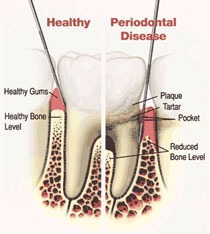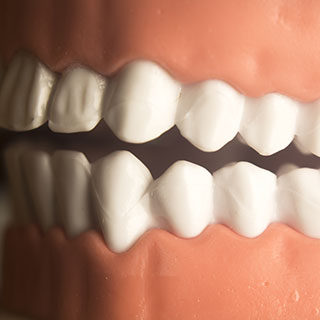Periodontal Therapy & Procedures
 What is Periodontal (Gum) Disease?
What is Periodontal (Gum) Disease?
Periodontal diseases are often seemingly symptomless infections of the gums. These infections gradually destroy the support of your natural teeth. In addition, studies have shown a strong link between periodontal disease – even in its early stages – and serious systemic diseases such as heart disease, stroke, diabetes, pre-term low birth weight, cancer, brain abscesses, pneumonia and, most recently, Alzheimer’s disease.
Tune into a free international webinar presented by former director Dr. Robert A. Levine and Dr. P.D. Miller, “The Use of the MMPPI in Clinical Practice: Benefits in Achieving Long-Term Periodontal and Systemic Health for our Patients.” Drs. Levine and Miller discuss the Miller-McEntire Periodontal Prognosis Index (MMPPI) and its impact on motivating patients to get systemically healthy by treating their gum disease and other risk factors as “physicians of the mouth.”
The best way to prevent gum disease is with effective daily brushing and flossing as well as regular professional examinations and cleanings. Some people, even with the most diligent home dental care, can still develop some form of periodontal disease. Once this disease starts, professional intervention is necessary to prevent its progress.
How Do You Know if You have Periodontal Disease?
There are several warning signs that can indicate that you may be experiencing some form of periodontal disease:
- Red, swollen, tender gums that bleed easily
- Bleeding during tooth brushing
- Gums that have pulled away from the teeth
- Persistent bad breath or bad taste
- Teeth that are loose or shifting, creating spaces that weren’t there
- Any change in the way your teeth fit together when you bite
- Any change in the fit of dental appliances
To schedule your no-obligation gum disease consultation, contact us today at 215-677-8686.
Interest-free or low interest payment plans are available for those who qualify and wish to pay their care over time. Click here to learn more or call our office.







